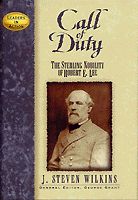
— Robert W. Johannsen
Lincoln, the South, and Slavery
Indeed, it would not seem a safe time to critique the wisdom, motivations, and character of Abraham Lincoln. Steven Spielberg’s reverential motion picture epic Lincoln fills screens across America. The public increasingly accepts him as America’s greatest leader. Academics from the Left — and Right — compete to bestow the grandest laurels on the 16th president.
Yet, such a pursuit is ever more important for a people hurtling forward into an uncertain future, to learn from past mistakes or merely become aware they made them. One growing consensus regarding Lincoln seems credible: He has exerted more influence over the development of this nation than any other person, including the Founders. If Washington be the father of our country, surely Lincoln is its stepfather.
This article will examine the significance of this truly larger-than-life figure’s actions regarding three of the many important issues of his time: 1) the Constitution, in particular during the War Between the States, 2) emancipation and blacks, and 3) the Radical Republicans and Reconstruction.
“I am the President of the United States of America — clothed in immense power!” Spielberg’s Lincoln thunders. The real Lincoln proved the truth of that claim within days of the April 12, 1861 attack on Fort Sumter. In fact, the attack might have been avoided if he had not decided to reinforce Sumter. Once it occurred, he quickly unleashed a series of watershed actions that forever altered the nature of American government.
On April 13, he declared the seceding states in a condition of rebellion and called for 75,000 troops to deal with them — a declaration expressly reserved to Congress by the Constitution: “The Congress shall have the power … To provide for calling forth the Militia to execute the Laws of the Union, suppress Insurrections and repel Invasions.”
On April 15, he called for Congress to return to session — but only on July 15, months after Ft. Sumter .
On April 19, he declared a naval blockade of the South.
On April 21, he instructed the U.S. Navy to buy five warships — an appropriations act needing congressional approval.
On April 27, he began the unprecedented act of suspending the constitutional right of habeas corpus.
On May 3, he called up thousands more troops — for three-year hitches — another act the law did not authorize the president to commit.
At about the same time, he ordered the Department of Treasury to pay two million dollars to a New York City company to outfit and arm his army — another appropriations act needing congressional approval.
Each one of these acts — and many more soon to follow — violated the U.S. Constitution. The majority of the U.S. public supported him, however, as the American people have supported other presidents since, when they felt the need to break the Constitution “for the public good.”
This early series of moves proved breathtaking in its shrewd efficiency. For instance, by not calling Congress back into session until July, Lincoln presented it with a fait accompli upon its return: a war months old from which there was now no turning back, unless Lincoln decided such, which he had no intention of doing. Whether or not Congress would have declared war on the South as had Lincoln, it now saw no choice but to fight.
Even Massachusetts’ Senator Charles Sumner, one of the spearheads of the Radical postwar Reconstruction and certainly no friend of the South, said: “When Lincoln reinforced Sumter and called for 75,000 men without the consent of Congress, it was the greatest breach ever made in the Constitution, and would hereafter give the President the liberty to declare war whenever he wished, without the consent of Congress.”
All this came from the hand of Lincoln, a man who as a U.S. congressman in 1848 declared: “Any people anywhere, being inclined and having the power, have the right to rise up and shake off the existing government, and form a new one that suits them better. This is a most valuable, a most sacred right — a right which we hope and believe is to liberate the world. Nor is this right confined to cases in which the whole people of an existing government may choose to exercise it. Any portion of such people, that can, may revolutionize and make their own so much of the territory as they inhabit.’’
In his landmark book The Real Lincoln, Loyola College economics professor and Lincoln scholar Thomas DiLorenzo recounted how Lincoln also unlawfully “nationalized the railroads; created three new states without the consent of the citizens of those states in order to artificially inflate the Republican Party’s electoral vote; ordered Federal troops to interfere with Northern elections to assure Republican Party victories; deported Ohio Congressman Clement L. Vallandigham for opposing his domestic policies (especially protectionist tariffs and income taxation) on the floor of the House of Representatives; confiscated private property, including firearms, in violation of the Second Amendment; and effectively gutted the Tenth and Ninth Amendments as well.”






























































No comments:
Post a Comment